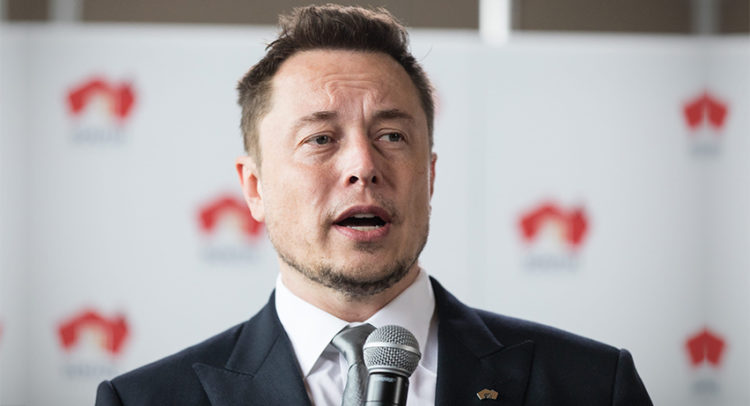Just a little over a week ago, Tesla (TSLA) CEO Elon Musk issued a stark warning to the company’s investors — and to investors in general. Musk said he had a “super bad feeling” about the state of the global economy, and where it’s heading. His feeling was bad enough, in fact, that according to some reports, Tesla might be preparing to lay off 10% of its workforce (or at least 10% of its salaried workforce) to right-size the company to meet diminished demand for electric vehicles.
Invest with Confidence:
- Follow TipRanks' Top Wall Street Analysts to uncover their success rate and average return.
- Join thousands of data-driven investors – Build your Smart Portfolio for personalized insights.
Just a little over one week later, we just got more details on what has the Tesla CEO so worried.
As Morgan Stanley analyst Adam Jonas reports in a recent research note, Musk is trying to “rally” his “troops” at Tesla to make a big push delivering electric cars this month, in an effort to hit analyst targets for deliveries before the second quarter wraps up. Jonas notes that “multiple media sources” have confirmed this plea from Musk (but Tesla itself, which no longer has a media department, has not confirmed it yet).
Whether or not Tesla eventually confirms the media reports, a big push at the end of Q2 would both be standard operating procedure for Tesla — and also entirely understandable considering how far behind production quotas the company probably is, after a weeks-long, Covid-inspired shutdown of Tesla’s Shanghai gigafactory in China. As Jonas pints out, 40% of Teslas produced globally are produced right there at that Shanghai plant, and China accounts for “well over 50%” of the profit Tesla earns in an average quarter.
With just two weeks remaining in the quarter, though, it’s doubtful Tesla will be able to make up its shortfall even with a big end-of-quarter deliveries push. If it fails to hit its target, though, how bad would that news be for Tesla?
Jonas has some thoughts on that score, and — good news for Tesla shareholders — he’s not worried at all.
Jonas admits there’s a risk Tesla will end up delivering fewer than 300,000 EVs in Q2 (He is thinking deliveries might top out at 292,000 units). He also predicts Tesla’s revenues won’t reach $18 billion, and earnings before interest, taxes, depreciation, and amortization (EBITDA) might fall as much as 10% short of analyst expectations. Nevertheless, in the analyst’s view, these misses will all be because of Tesla’s inability to produce cars fast enough to meet demand — not because of any lack of demand. Accordingly, Jonas believes a Q2 deliveries miss will create pent-up demand leading to a bumper crop of deliveries in Q3. And by year end, “any lingering impact of the Shanghai lockdown on Tesla production [will] probably [be resolved].”
And here’s some more good news: According to Jonas, Tesla may be preparing to add China’s BYD as a battery supplier for its cars. In the analyst’s view, this is good news both because diversifying suppliers is always a good idea, and also because adding BYD to its supplier list will increase price competition — and keep prices low — for batteries coming from Tesla’s preferred Chinese battery supplier, CATL. This creates the potential for Tesla enjoying stronger profit margins even as its supply and production problems work themselves out towards the end of this year.
It also helps to explain why, even as Tesla appears to be racing towards a Q2 “miss,” Jonas still rates Tesla stock an Overweight (i.e. Buy) with a $1,300 price target. (To watch Jonas’ track record, click here)
Overall, there’s a positive feeling on Wall Street about TSLA, along with some caution. The Moderate Buy consensus rating is based on 30 analyst reviews that include 16 Buys, 8 Holds, and 6 Sells. The average price target of $917.10 suggests an upside of ~34% from the current trading price of $683. (See TSLA stock forecast on TipRanks)
To find good ideas for stocks trading at attractive valuations, visit TipRanks’ Best Stocks to Buy, a newly launched tool that unites all of TipRanks’ equity insights.
Disclaimer: The opinions expressed in this article are solely those of the featured analysts. The content is intended to be used for informational purposes only. It is very important to do your own analysis before making any investment.











